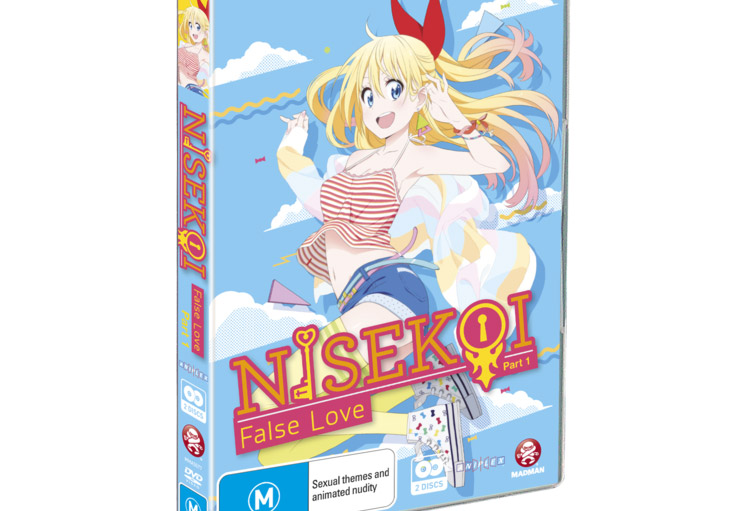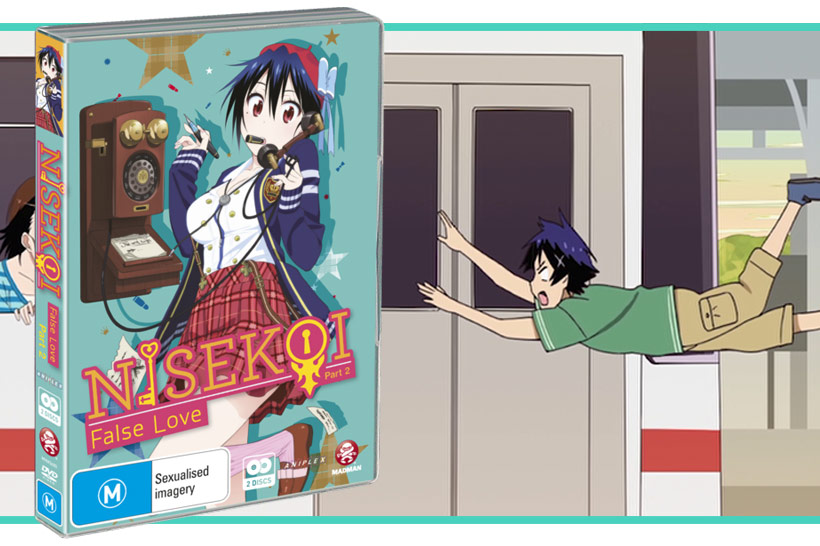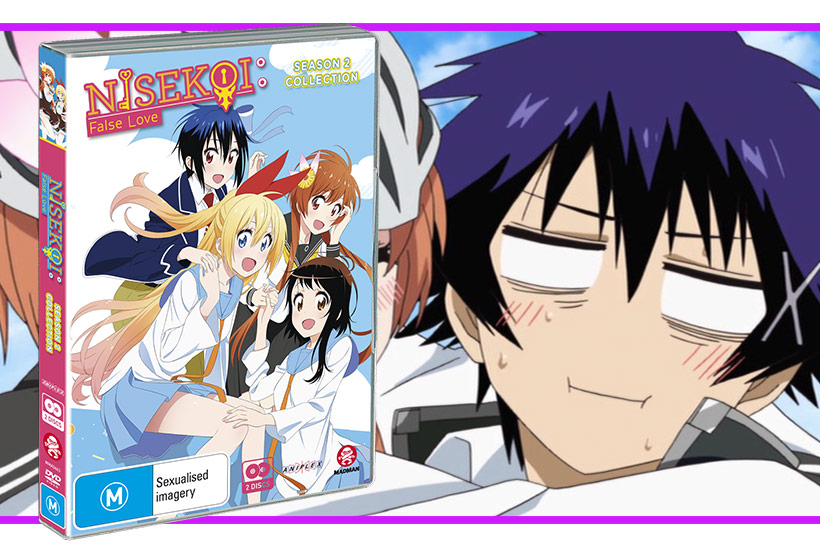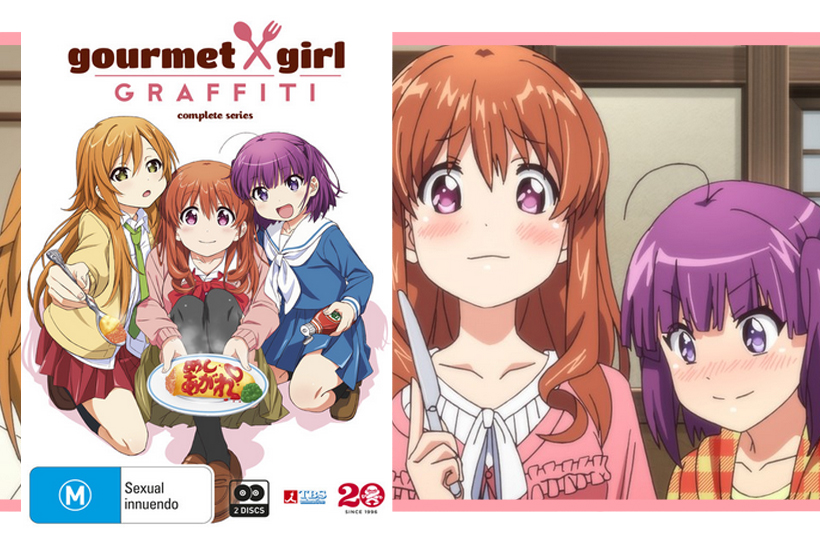To be honest I wasn’t sure where to start with Nisekoi. I’m a sucker for slice of life/high school/romcom/drama/comedy anime so it ticked all the boxes, but at the same time on the surface it also seemed a little too familiar to the veritable ocean of similar shows out there. The question is, what can it bring to stand out from those which have come before it?
On the face, Nisekoi is typical high school shounen romcom fare. Raku is the son of a goofy Yakuza family determined to do good and escape the life of crime; Chitoge is the daughter of a goofy mafia family and is also uninterested in entering the family trade. The day Chitoge starts at Raku’s school they inevitably clash, then they come home to find out that their respective crime boss fathers have arranged for them to become a couple to halt an ensuing war between the families.
From here the duo have to maintain the visage of the happy couple at school and at home. This gets complicated as Raku has a long-standing crush on his classmate Kosaki, who conversely has a secret crush on Raku. The love triangle gets muddied as Raku made eternal love promises to a girl when he was a kid and we’re given the suggestion over who in the group this could be. As the series continues in this box set and the couple go through the tropes (weekend date, locked inside inescapable rooms on their own, school camp, onsen adventure, classroom activities and so forth), they begin to warm to each other just as Raku finally starts to make some progress confessing to Kosaki.
There’s nothing too surprising in the mix – in fact, on paper it seems very much sticking to tried and tested tropes. There’s lashings of Ranma 1/2 in the aggressive/warming relationship between the main protagonists, echoes of Love Hina with the childhood promise. School camp and onsen visits are a staple for this genre, as are secret crushes, goofy friends and over the top characterisation by the supporting cast.
What is odd is that despite how familiar it sounds (and let’s be honest, it’s just as tropey in practice), the main characters are genuinely interesting and the show does a good job of showing restraint in areas that are normally exploited for all sorts of fanservice. Raku is a reasonably balanced guy who features redeeming qualities so he doesn’t feel like a cheap knock-off of Keitaro from Love Hina despite the potential. Chitoge can be genuinely nice and sweet, and when balancing against her aggressive nature actually manages to endear you to her character but in a way that doesn’t make you automatically think of Akane from Ranma 1/2. The support cast are interesting, and between them and the main stars, help keep the momentum going once it gets a few episodes in.
You could successfully argue that the show is an exercise in compiling genre standards into a single show and you’d be right. However, to the creators’ credit, they’ve been able to do this in a way that makes the show interesting and compelling. I was certainly surprised that after finishing this box set which covers the first 10 episodes, I’m keen to see how the rest of this season will go.
A review copy was provided by Madman Entertainment to the author for the purpose of this review.





